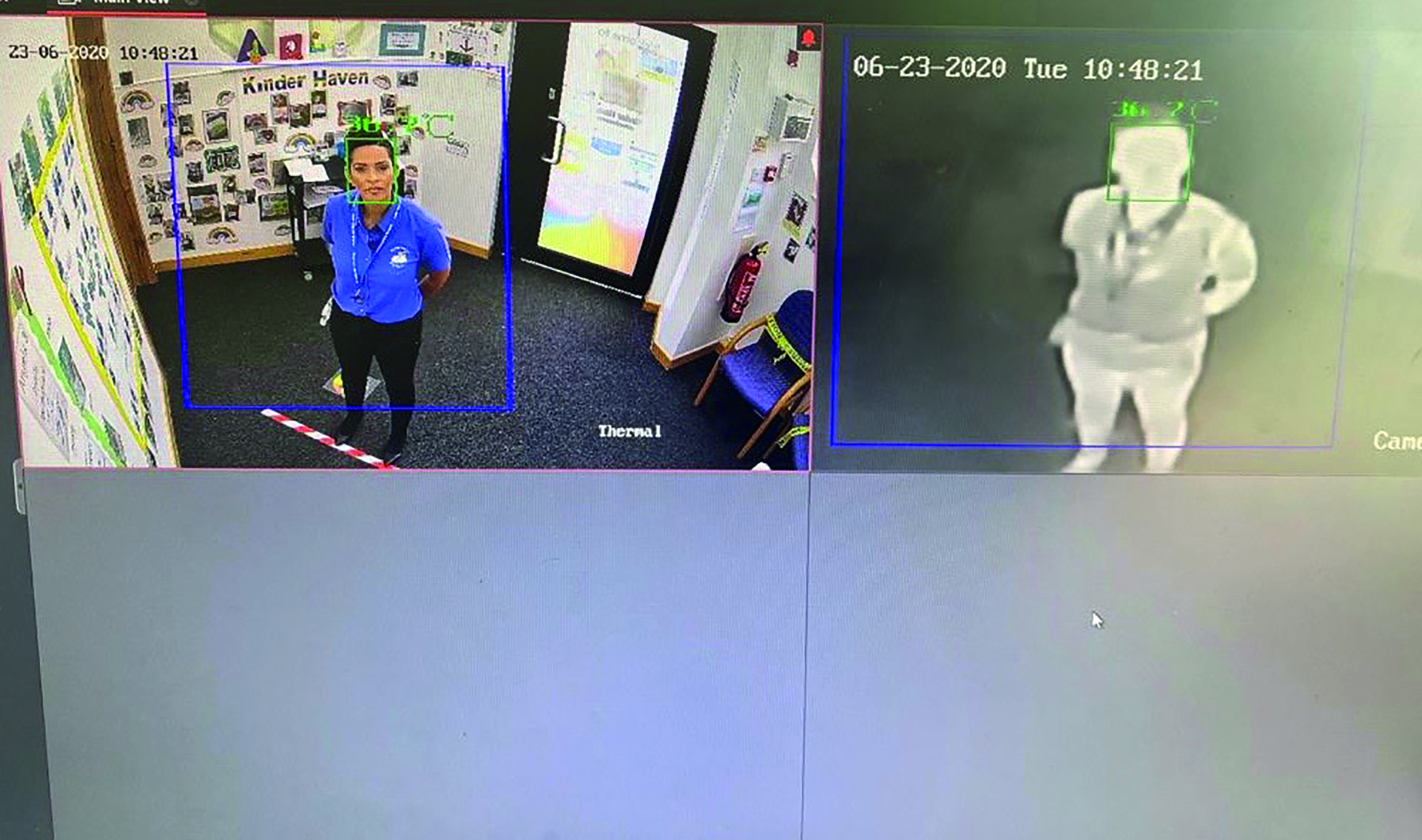
Nurseries are embracing new technology to reassure parents their settings are safe and secure to return to during the Covid-19 outbreak, and to attract new parents through the door.
Nursery World looks at some of the ways nurseries are adapting their systems and how they work to future-proof their businesses in ‘the new normal’.
Thermal screening cameras

Danielle Dixon, owner of Kinderhaven Nurseries, with one of several thermal screening cameras the nursery group has bought for its settings
At the start of lockdown, Kinderhaven Nurseries in Bradford installed thermal screening cameras in the four nurseries it kept open as hubs and is expanding the technology across its nine settings in Bradford.
Register now to continue reading
Thank you for visiting Nursery World and making use of our archive of more than 35,000 expert features, subject guides, case studies and policy updates. Why not register today and enjoy the following great benefits:
What's included
-
Free access to 4 subscriber-only articles per month
-
Unlimited access to news and opinion
-
Email newsletter providing activity ideas, best practice and breaking news
Already have an account? Sign in here
